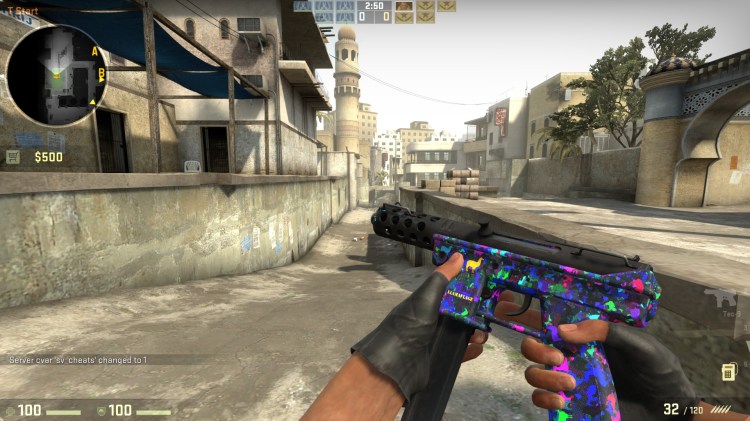The government of the state of Washington isn’t down with gamers gambling virtual items, and it has asked one of the primary companies enabling this practice to do everything it can to stop it.
The Washington State Gambling Commission is telling Valve, the owner and operator of the Steam PC-gaming platform, to “stop facilitating gambling.” In a press release that went out today, the gaming board announced that it has notified Valve that the company needs to cut off any gambling-related transfers of cosmetic weapon skins. Betting these kinds of skins is a popular activity among people who play Valve’s Counter-Strike: Global Offensive military online shooter. They use third-party sites to put skins into a collective prize pool as part their ante to take part in matches. The winning team then collects those skins. But since these virtual goods often have real-world value — sometimes ranging in the thousands of dollars — regulators are starting to take notice.
“In Washington, and everywhere else in the United States, skins betting on esports remains a large, unregulated black market for gambling,” Washington state gambling commissioner Chris Stearns said in a statement. “And that carries great risk for the players who remain wholly unprotected in an unregulated environment.”
GamesBeat asked Valve if it would like to respond to any of this. The company has not responded to our request.
But in the past, Valve has come out to reiterate that it does not permit skin gambling through its Steam API. That has led to sites like CSGOfast.com, which enabled betting, to shut down over the summer. But while the company’s terms-of-service prohibits using the tech to enable players to trade skins as a means of gambling, sites like Skinjoker.com still do exactly that and even feature a “Powered by Steam” trademark in their footer. Washington state is making it Valve’s responsibility to stamp out those sites.
Skin trading came under scrutiny earlier this year when some intrepid YouTube creators uncovered that Counter-Strike community members Trevor Martin and Tom Cassel owned the skin-gambling site CS:GO Lotto and were allegedly faking their reactions to winning loot in videos to promote their business. While it is a violation of Federal Trade Commission guidelines for a person claiming to be a “regular Joe” to financially benefit from promoting a product without disclosing it to their audience, many critics instead latched onto claims that people under the age of 18 were gambling skins on CS:GO Lotto.
“We are also required to pay attention to and investigate the risk of underage gambling, which is especially heightened in the esports world,” said Stearns. “It is our sincere hope that Valve will not only comply but also take proactive steps to work with the Commission on future measures that will benefit the public and protect consumers.”
Valve has until October 14 to respond to the commissioner’s request and to show it is in compliance. If the company fails to do that, Washington state may take civil or criminal action against the company.
VentureBeat's mission is to be a digital town square for technical decision-makers to gain knowledge about transformative enterprise technology and transact. Learn More

